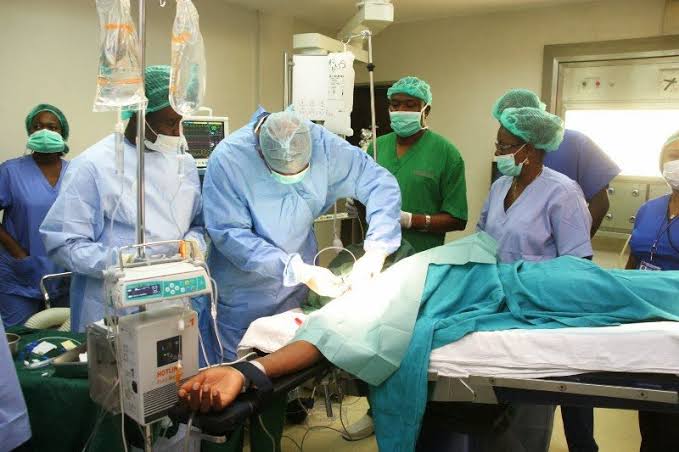Concerns have arisen among the members of the Joint Health Sector Unions Assembly (JOHESU/AHPA) regarding the potential exodus of more healthcare workers from Nigeria in the coming year as they seek improved opportunities abroad.
The healthcare professionals affiliated with the Healthcare Professional Associations (AHPA) express apprehension about the increasing trend of skilled workers leaving the country in pursuit of more favorable prospects overseas.
This apprehension stems from the belief that the current conditions within the healthcare sector in Nigeria may not be conducive to retaining these professionals, leading to a potential drain of valuable talent from the nation’s healthcare system.
The members are worried that the allure of better opportunities elsewhere may prompt healthcare workers to explore options abroad, leaving behind a potential gap in the healthcare workforce within the country.
The complex interplay of factors contributing to this concern involves issues such as working conditions, remuneration, and overall job satisfaction, which are perceived as challenges that healthcare professionals in Nigeria face.
Addressing these concerns and creating an environment that fosters professional growth and satisfaction may be crucial in retaining skilled healthcare workers and mitigating the potential impact of this ongoing trend.
They also said they might go on strike if the federal government stops allocating funds to professional regulatory councils.
In a letter to the Minister of Health, Prof. Muhammad Ali Pate, the union cautioned, “If this situation isn’t handled, we anticipate that over 25 percent of practitioners in Nigeria may leave for better opportunities overseas.”
The union demanded the Budget Office immediately halt attempts to cut budget allocations to health sector professional regulatory councils to prevent supporting members’ calls to withdraw services in protest.
In the letter signed by the acting national secretary of JOHESU, Comrade Matthew Ajorutu, the union alleged that the Budget Office’s directive initially affected all professional regulatory councils, including the Medical and Dental Council of Nigeria (MDCN), which oversees medical and dental practice in Nigeria.
Ajorutu noted, “The Budget Office’s directive initially impacted all these Professional Regulatory Councils, including the Medical and Dental Council of Nigeria (MDCN). However, only the MDCN has been allowed to continue receiving government funding as outlined in the N11 billion budget estimate for 2023.”
He cautioned about the “impending consequences” for healthcare consumers in Nigeria if the minister doesn’t reverse the regressive directive.
These consequences, he explained, would make various professional practitioners more susceptible to illegal and unethical practices.



